Sri Lanka needs strong government, and we have one
Dr Kamal Wickremasinghe
The virtual non-existence of an effective parliamentary opposition in
Sri Lanka is sustaining the growth and proliferation of
extra-parliamentary groups and movements with sinister agendas. The
attempts of some notorious NGOs and other hastily put together unelected
‘collectives’ to fill this void constitute a major threat to the
integrity of Sri Lanka’s democracy.
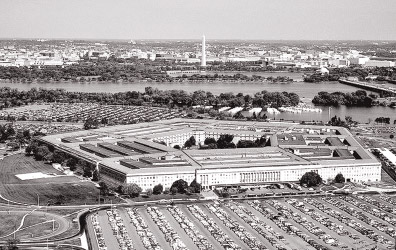 |
|
The
Pentagon |
The public are fully awake to the motives of such parasitic, dollar
hungry groups and the inconsistencies between their words and deeds. The
high level corruption involved with NGOs like the so-called Centre for
Policy Alternatives and Transparency International and various lawyers
‘collectives’ easily surpasses their mock concern for civil liberties
and the catalogue of other ‘wholesome’ values downloaded from foreign
sources.
The public are largely ignoring their wolf cries aimed at
‘manufacturing’ a crisis or two based on purely administrative issues in
the country. As demonstrated through the impeachment incident, the
desperate attempts take on farcical proportions due to the total lack of
public response other than the queries of - what crisis? Of course next
they blame the ‘apathy’ and ‘ignorance’ of the public and shamelessly
pray for ‘foreign intervention’.
While constantly complaining of threats to ‘rule of law’, they behave
in the most disgraceful manner by collecting foreign money and fighting
non-payments. Their work seem to involve launching cowardly defamatory
attacks at the president, the chief justice and other public officials,
through websites operated from overseas locations - Every crime
committed in the country is blamed directly on the president as a
breakdown of ‘law and order’ and a hue and cry is made, from Hong Kong,
over any delay in catching culprits, a common feature of police work the
world over.
The purpose here is to bring to light the level of intellectual
corruption involved in the destructive and divisive imported value
system they are attempting to impose on the Sri Lankan people.
Evil roots of the neocon sponsors of NGOs
The cultivation of NGOs in the developing world through the
indoctrination and corruption of select local reactionaries is the
sinister ploy of a group of American paleoconservatives now referred to
as the Neoconservatives, or neocons for convenience.
The neocon project began in earnest in the early nineteen seventies
when they hijacked the US Republican Party and worked their way in to
government in 1981 through the Ronald Reagan regime. Since then, they
have corrupted American foreign policy, driven America to financial ruin
through foreign wars, and have triggered the process of America’s
decline as an honourable citizen of the world.
Neocon leaders like Paul Wolfowitz, Richard Perle, Douglas Rumsfeld
and Elliott Abrams and numerous others who ruled the Pentagon, state and
defence departments, the National Security Council and the White House
during the Reagan and Bush regimes are rarely seen or heard of in public
these days, but countless NGO merchants carry on their legacy in return
for good dollar payments.
The deceptive manner in which the neocons managed to fool even some
honourable people in developing countries, outside the NGO gravy
train,with a bogus value set that underpins their imperialist,
reactionary agenda by hobbling together remnants of a number of
discarded ideologies is nothing short of striking.
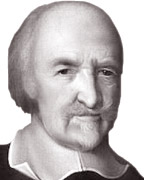 |
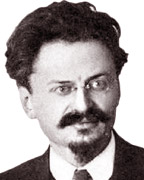 |
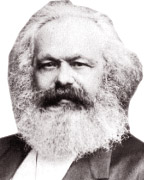 |
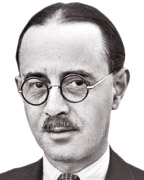 |
| Thomas
Hobbes |
Leon
Trotsky |
Karl Marx |
Harold
Laski |
The corrupt and incoherent neocon dogma that underlies the
‘rights-based’ distorted value system the NGO movement is paid to
propagate, sticks out like a sore thumb from the landscape of the more
sophisticated Western political philosophy.
Neocon ideology is nondescript, an opportunistic
The neocon ideology, if there is any to speak of, does not lend
itself for easy characterisation. The largely opportunistic strategic
alliances they make with groups ranging from Al-qaeda to Islamic Jihad
in different countries shows non-adherence to any ethically based
ideological stream:the one defining feature of their ideology is the
advocacy of the use of US military strength to create ‘democratic’
governments in what they refer to as ‘failed states’. Their version of
democracy means ‘puppet government’ and virtually any country in the
developing world with independent minded and strong leadership is
considered ‘failed’.
They target such countries classed as failed according to their own
definition for military intervention,and where UN and other support for
direct military action cannot be ‘manufactured’ through deception, as
was done in the cases of Iraq and Libya, they seek to foment internal
division as a precursor to actively undermining the territorial
integrity.
The usual modus operandi deployed to achieve this end is to dictate
‘power sharing’ arrangements that nakedly exploit ethnic and other
sources of disharmony - They campaign against even the most benign
commitment to national or ethnic coherence on account of alleged power
and economic inequality. The ‘rights’ campaigns launched through corrupt
local elements deployed under altruistic sounding NGO cover are an
essential part of the strategy.
Attempts to trace the theoretical roots of the neocon dogma have
yielded descriptions such as “a combination of an inverted form of
Trotskyism and far-right Likud Zionism” - they do appear to have
replaced Trotsky’s theory of exporting “revolution” with a reactionary
version of “democracy” by military means, and their leading lights are
almost without exception leading American Zionists.
But there is no dialectic associated with neocon thinking that is
traceable to Trotsky’s “The New Course”or any other version of Marxism.
However, similar to the French Jacobins who regarded tradition as
incompatible with virtue and rationality, neocons camouflage their ‘new’
approach with stolen and cliched leftist terminology, as has been
analysed in detail by Professor James Petras.
The Canadian academic of Egyptian Christian origin, Shadia Drury has
traced the possible ideological origins of neo-conservatism to the views
of the Chicago University academic Leo Strauss whom she claims taught
that “perpetual deception of the citizens by those in power is critical
because they need to be led, and they need strong rulers to tell them
what’s good for them.”
This view appears eminently compatible with the neocon
propagation,inside America, of the myth of their effort to make a
particular set of American values “universal”,as justification for
military intervention around the world.
The neo conservative thinking incorporates some of the views of
Harold Laski who moulded the minds of many future leaders fighting
colonialism in the 1930s and 1940s at the London School of Economics
(LSE), including the pioneers of the Left in Sri Lanka.
However, Laski was ideologically nondescript and is known to have
been a “Marxist” only in terms of his conviction in the broadest sense
that salvation of the working classes lay in a planned economy based on
the public ownership of the means of production. But he viewed the
notion of the dictatorship of the proletariat with intense suspicion.
The LSSP Manifesto of 1935 that announced a nationalist, socialist
agenda, rather than a communist one, essentially reflected Laski’s
influence.
In his book Grammar of Politics (1925), Laski accepts the validity of
Marx’s prediction of the inevitable decline of capitalism, but shows a
distinct lack of understanding of the all-embracing nature of the theory
of dialectical materialism. By that yardstick at least Laski was not a
Marxist.
Setting the people against governments is a proven ‘divide and rule’
strategy
With that background, neocons could not have received sustenance in
terms of progressive thinking from Harold Laski. What they did receive
from him was a useful tool that can be used to undermine the power of
governments in poorer countries.
Laski, in common with many other Jewish intellectuals in the 1920s
and 1930s including Leon Strauss, a refugee from Nazi Germany who went
to America in the 1930s, harboured intense anti-state feelings founded
on the rise of the German state and the tyranny of Nazism. The ascent of
Hitler to power was the turning point even in the life of Leon Trotsky.
Though expelled from the USSR in 1929, Trotsky considered himself
part of the Comintern until the very end of the German Communist Party
and Hitler consolidated his power. He only started supporting the rise
of a Fourth International in the mid-1930s. After the wars, the hatred
of Jewish intellectuals and activists against Stalin and the USSR
intensified following the Soviet support of the Arabs against the
establishment of Israel and their curbs on Jewish emigration.
As part of this movement which interpreted politics through the prism
of the rise of the Nazi state, Laski started refuting doctrines of
allegiance to state as ‘fatal to liberty’. He insisted that the State
was only one social association among many, distinguished by the legal
right to enforce obedience. In his view that legal right was devoid of
any ethical dimension.
There is no evidence to suggest that Laski ever considered the
possible social consequences of this view that would go perilously close
to creating chaos and ultimately,anarchy. The neocons appear to have
found utility in Laski’s theory that is incomplete at best.
Laski’s views were diametrically opposed to those of Thomas Hobbes
The intellectual shallowness of Laski’s pathetic and ill-thought out
‘theory’ against any government control of society becomes readily
apparent when compared with the views of the 17th Century English
philosopher Thomas Hobbes’ discussion on the subject in ‘Leviathan’
(1651).
Hobbes is the founder of modern political philosophy in the West.
Before Hobbes, writers other than Machiavelli had limited discussion on
the origins of government to the divine right of kings. Born in 1588,
just 24 years after Shakespeare, Hobbes was a contemporary of other
great scholars such as Francis Bacon and Ben Jonson. Hobbes lived in a
time of unprecedented social and political upheaval and divisions in
English society along religious, economical, and regional lines, setting
the scene for the Civil Wars of 1642-46 and 1648-51 that finally led to
the execution of King Charles and the birth of a republic. Hobbes’ views
were possibly coloured by his close association with the king, and
allegiances to royalists in disputes between the king and Parliament.
Despite such well known influences, Hobbes’ discussion on the rights of
the individual against those of the state in Leviathan is considered to
be comparable to the political writings of Plato and Aristotle.
Hobbes’s personal observations and experiences of social and
political chaos appear to have propelled him to philosophise on the
sources and the nature of conflict, and more importantly on ways to
prevent it. The fruits of his labour was Leviathan that lays out
possible means of peaceful human co-existence, avoiding the danger of
civil conflict.
Hobbes characterises the natural, but eradicable state of man as one
in which deadly conflict is endemic due to each man seeking to preserve
his life and property from the depredations of others - Those who are
aggressively and belligerently dedicated to their own self-interest or
self-preservation as well as those who are honest, intelligent and
decent represent an equal threat to civil stability, because each person
believes they occupy the moral high ground. The diversity of such
consciences will naturally give rise to conflict, endangering peace and
harmony of the polity.
Hobbes’ remedy for that condition is the formation of a genuine
political union with absolute sovereignty - a single human being such as
a king or a group of decision makers such as a parliament with a set of
clearly entrenched rules or laws -a mythical Leviathan, the Biblical sea
monster that symbolises power. Hobbes was unwavering on vesting the
sovereign with “absolute” power that transcends all others, and over
which there is no appeal. Hobbes does not totally preclude dissent and,
indeed, he emphasises that any decision made by the sovereign must be
fair and just. But once a decision has been made it is binding, and
active civil disobedience thereafter is prohibited.
Hobbes repudiates the uncontested modern theory of a state based on a
set of “higher laws”, a constitution that regulates and defines the
power of government and its officials. In Leviathan 29, 9 Hobbes claims
that such an arrangement is impossible due to the definite prospects of
the subjects of a commonwealth never reaching a unified interpretation
of a constitution. That will necessitate an adjudicator effectively
making the sovereign subordinate,generating regress. Hobbes also
repudiated a government with sovereignty divided among different
branches, simply because powers divided mutually destroy each other
(Leviathan 29, 12).
Hobbes ends by saying that the truth of his ideas can be gauged only
by self-examination, by looking into ourselves to adjudge our
characteristic thoughts and passions, which form the basis of all human
action.
Hobbes’ philosophy is directly relevant to today’s Sri Lanka
Unlike Laski’s half-baked idea being peddled by the NGOs that the
state necessarily and inevitably becomes the oppressor in all
circumstances, Hobbes’s political philosophy is based on a form of
scientific study of the helpless nature of the human condition that
makes humans vulnerable, and the necessity for making compromises for
individual survival as the common good.
Hobbes’s analysis of human nature, like those of all other Western
philosophers before and after him, though not nearly as exhaustive or
sophisticated as similar Eastern analyses in Vedic literature, by the
Buddha or Confucius, is illuminating in terms of possible solutions to
the ‘economic’ problem of communal living sharing limited resources.
Hobbes’ thesis that the problems of political life necessitates the
acceptance an ‘unaccountable’ sovereign as sole political authority is
clearly beyond the pale. However, his principles for the construction of
a polity based on ‘give and take’ are ‘rational’, and probably the
‘only’ means of preventing the destruction of a polity from within.
Having lived through the period of political disintegration and the
English Civil War, Hobbes came to the view that the burdens of even the
most oppressive government are “scarce sensible, in respect of the
miseries, and horrible calamities that accompany a Civil War”.
This makes Hobbes’ philosophy and prescription, taken with a pinch of
salt, eminently suitable to address the current social situation in Sri
Lanka:we need glues that bind us rather than divisive rights campaigns
based on imperialist designs.
The foreign-paid NGO cacophony for nominal ‘civil liberties’ of
heavenly standards in a country that has been through a 30 year war, not
due to limitation of the ‘right to protest’ but due to unacceptable
levels of poverty, and where the vast majority of people of all
ethnicities are still languishing in poverty, is not based on reality or
the need of the hour.
Leviathan is a classic of English prose,but not an easy book:archaic
Middle English spelling and the weight of subject matter demands
concentration. However, it is an important work that the younger
generations of bright Sri Lankans need to access, especially those who
are employed by the NGOs.
The Sri Lankan population who cannot boast degrees from the LSE or
Harvard live the Leviathan,and this is probably the reason why they are
boycotting the NGO boycotts!
|







